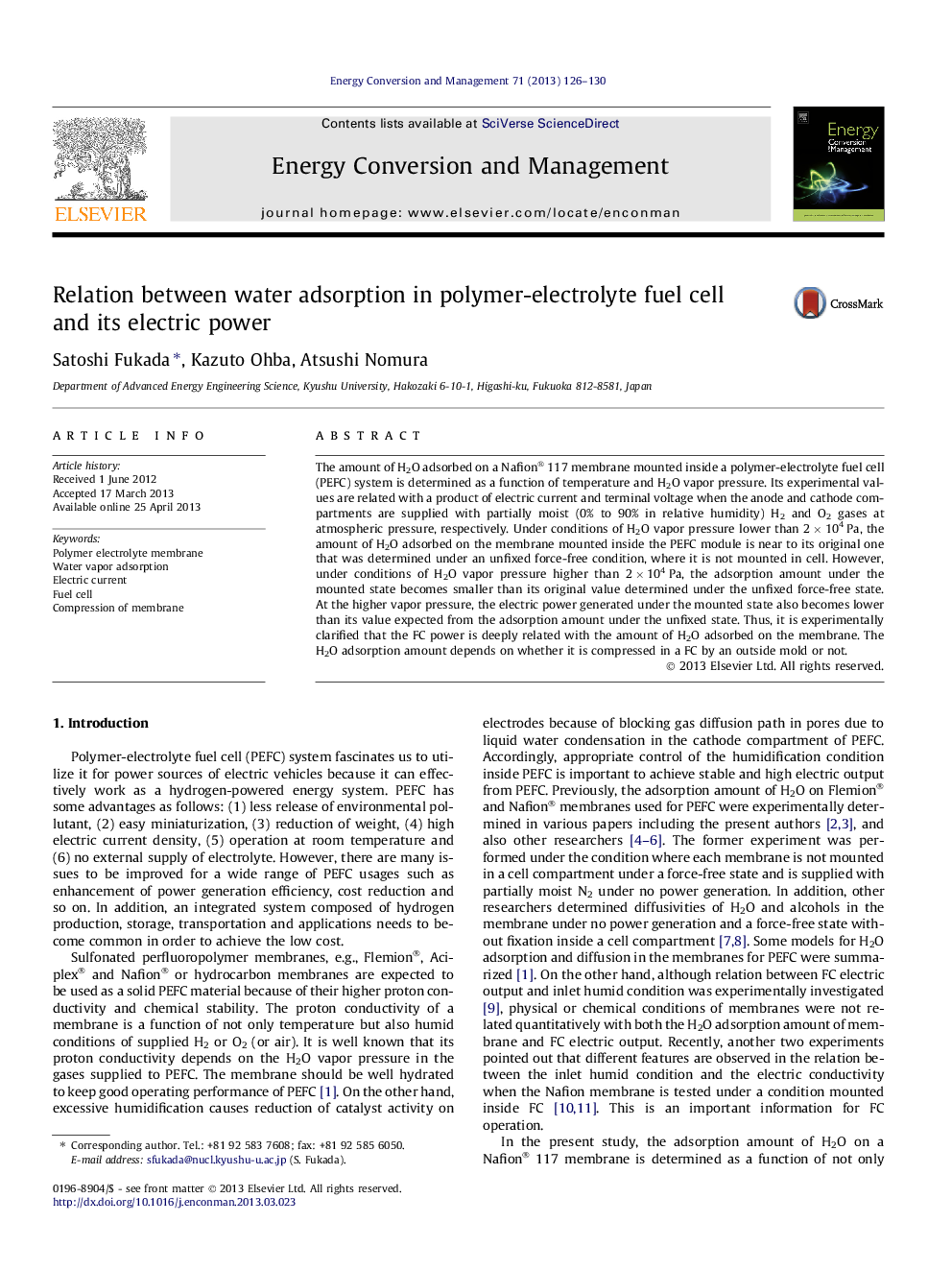| Article ID | Journal | Published Year | Pages | File Type |
|---|---|---|---|---|
| 772155 | Energy Conversion and Management | 2013 | 5 Pages |
•The amount of H2O adsorbed on a Nafion® 117 membrane under electricity generation is correlated as a function of its vapor pressure and temperature.•The amount of H2O adsorbed on the membrane is correlated whether the membrane is under a compression state or not.•The adsorption amount behaves differently under the condition where the membrane is compressed by an outside frame.•The difference in H2O adsorption amount between mounted and unmounted states is explained based on force acting on the membrane.•Relation between electric conductivity and adsorption amount of membrane is clarified.
The amount of H2O adsorbed on a Nafion® 117 membrane mounted inside a polymer-electrolyte fuel cell (PEFC) system is determined as a function of temperature and H2O vapor pressure. Its experimental values are related with a product of electric current and terminal voltage when the anode and cathode compartments are supplied with partially moist (0% to 90% in relative humidity) H2 and O2 gases at atmospheric pressure, respectively. Under conditions of H2O vapor pressure lower than 2 × 104 Pa, the amount of H2O adsorbed on the membrane mounted inside the PEFC module is near to its original one that was determined under an unfixed force-free condition, where it is not mounted in cell. However, under conditions of H2O vapor pressure higher than 2 × 104 Pa, the adsorption amount under the mounted state becomes smaller than its original value determined under the unfixed force-free state. At the higher vapor pressure, the electric power generated under the mounted state also becomes lower than its value expected from the adsorption amount under the unfixed state. Thus, it is experimentally clarified that the FC power is deeply related with the amount of H2O adsorbed on the membrane. The H2O adsorption amount depends on whether it is compressed in a FC by an outside mold or not.
